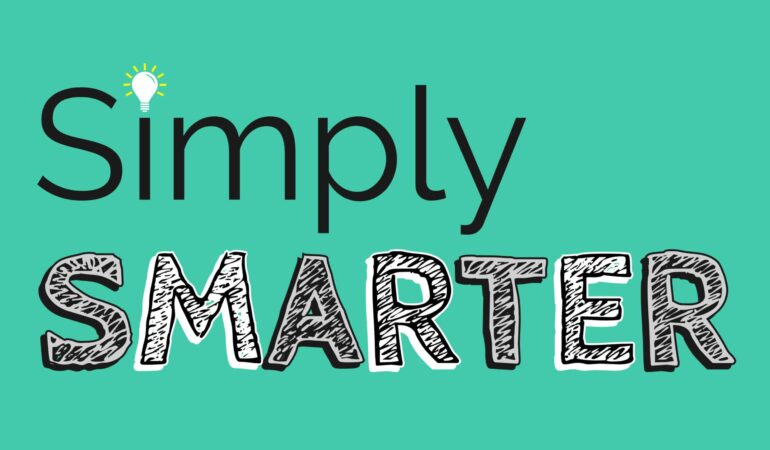ACT Specific Watches
At Get Smarter Prep, we’ve received a few questions lately about watches designed specifically for use on the ACT and other standardized tests. At first glance, these devices might seem useful. They’re intended to help you track how many minutes you have left in a section and which question or passage you should be on. They come pre-programmed with the number of minutes and questions for each section. As a bonus, they’re silent, and therefore “ACT-approved.”
As great as they seem on the surface, though, we can’t recommend them, for several reasons.
Accuracy over Speed
Accuracy is more important than speed on the ACT. Getting to your goal score is about much more than rushing to make your way to the end of a particular section within the allotted time. Nearly every student struggles with time on the ACT, and nearly every student can reach their goal without completing every question.
An important part of your preparation for the ACT should be working out which questions deserve your time and attention and which ones do not. There might be one Reading passage that consistently gives you trouble, and perhaps skipping it boosts your Reading score. There might be one type of English question that you find especially tricky or time-consuming, and perhaps skipping those types of questions and saving them for the end is your best approach. Most students benefit from cutting loose the last 10 (or 15, or 20) Math questions in favor of spending more time on the earlier questions.
These watches assume you’re going straight through the section, at a rapid, constant pace, and this simply isn’t the best approach for most students.
Each Question is Different
Some questions are harder than others.
The most obvious example of this is the Math section. Math question #47 will almost certainly take you longer than question #3 – that’s fine, as question #47 will likely be trickier and involve a bit more work.
You are not a robot who can be counted upon to spend exactly one minute per Math question, or exactly 8 minutes and 45 seconds per Reading passage. Some questions and passages will take you more time, and some will take you less. If you’re constantly glancing at your wrist, though, comparing yourself to an inflexible standard, you’ll likely only grow frustrated and distracted from what’s most important – getting points.
Each Student is Different
The ACT is a predictable, standardized exam that behaves in predictable ways. Knowing how the ACT is set up allows students and tutors to plan and strategize. However, even though the test is standardized, students are not! Each student is going to have a slightly different path to their best test performance. It is important to be open to making those adjustments as you prepare, instead of trying to base your strategy on the watch. The ACT is stubborn and inflexible enough for all of us – we need to adjust and adapt in order to be successful.
Technology Sometimes Fails
If your test performance hinges too much on the watch at your wrist, what happens if it fails? If the battery dies, or some other mundane mechanical problem arises? Your best insulation against the timing restrictions of the ACT is practice and strategy. Having a plan, practicing the plan, and following the plan is much more reliable than counting on a piece of technology that may or may not reliably get you through the exam.
Proctors Might Object
All these products advertise that they are allowed on the ACT, but a glance at their Amazon reviews shows that there have been instances where proctors don’t allow the watch into the room. If you practice with it and come to depend on it, and then the proctor doesn’t allow it into the testing room, you may become frustrated, anxious, or discouraged. That’s not a recipe for success on test day!
We want to see you get the best score you can on the ACT, and we don’t think these watches are the best way to accomplish that. Practice and preparation are key, even if they are more work than picking up a new watch.
Running Out of Time
It’s a common occurrence when taking the ACT. If you’re like most students, you struggle to finish different sections of the ACT or maybe even struggle to finish every section! You’re not alone. There are a lot of questions and this is a timed test, so time management is key to finishing each section.
Let’s take a quick look at the breakdown of questions and the allotted amount of time per section.
Questions |
Time |
|
English |
75 | 60 Minutes |
Math |
60 | 60 Minutes |
Reading |
40 | 35 Minutes |
Science |
40 | 35 Minutes |
English:
We like to say that the English section is one of the easiest sections to pick up points. Think about…within this section you are reviewing idioms, punctuation, pronouns, verbs, rhetoric content, and rhetoric style. Those are all things you’ve most likely learned about in the eighth grade. A solid review of all of those categories will pick up lost time within this section and leave you feeling ready for the math section, where students typically feel rushed.
Math:
The math portion of the ACT can be tricky for some students. There are 60 questions and 60 minutes to complete the section. Within this section, the questions become progressively harder. The second half of the test will generally have the questions that take the longest amount of time to solve and will involve more geometry and trigonometry than algebra. Do you struggle with geometry? Do you need help with trig? Defining what areas you struggle with and spending more time brushing up on those skills will be a huge help with the math section. Try not to rush. Answer each question to the best of your ability and if you feel pressed for time, bubble in the last questions with the same letter. Read about our Letter of the Day Strategy here.
Reading:
Most students have a hard time completing the reading section since there are four different passages (humanities, social sciences, natural sciences, literary fiction) to skim through as well as forty questions to accompany the passages. You have less than a minute to answer each question! Don’t freak out. There are different strategies to use within the reading section. Each passage has ten questions. Skim through the passage, then attack the questions. There are different categories within the passage such as line reference (e.g., “In lines 16-20”). Line reference is literally directing you straight to the lines within the passage! Other categories include lead word, comparing passages, vocabulary in context, the main point/big picture, and tone.
Science:
Here’s a shocker…there is no physical science in the science section of the ACT! It’s mainly charts and graphs. As you study for this section, make sure you know how to accurately read graphs and charts since the answers for all of the questions are right in front of you. For the questions that you can’t answer with the visuals, you can usually figure them out by reading the passage. Save time by skipping the instructions and head straight to the questions. Then go back to review the passage and the answer will most likely be within the passage.
Every student is different, but the common occurrence among all students is time management within the ACT. One way we like to prepare students is by giving them a Pretest, Midterm, and Final. Then we compare each test to see how far each student has improved. Not only does this get students ready for the test by practicing strategies, but it also helps practice their time management skills.
New Year’s Resolutions
New Year’s Resolutions
Everybody has them, but how long do they keep them? New Year’s Resolutions are pretty standard for most people. Everyone who makes them is bound and determined to keep their resolutions for the entirety of the year. However, if you ask those same people how their resolutions are coming along in June or July or even as early as March, I bet most of those people wouldn’t remember what they wrote down on January 1st.
We have good news. Depending on what your resolutions are, we can help you! At Get Smarter Prep, our passion is helping students learn. Whether that means increasing your overall ACT composite score, learning how to study better and more effectively, or to be accepted into your dream college. Whatever your goals are this year, our tutors are here to help.
With so many different ACT/SAT test dates, the first step is to determine which test date is right for you. The ACT has test dates in February, April, June, July, September, October, and December. The SAT has test dates in March, May, June, August, October, November, and December. Get Smarter Prep starts prepping for these test dates usually 8-10 weeks before the test. Look at your schedule and see which test date is best for you. Be sure to factor in extra-curricular activities, finals, work schedules, etc.
Maybe your goal for this year is to become an overall better student. We offer Study Skills Tutorials that will help identify your learning style and apply that information to all of the areas you need for high school and beyond. The skills can include role taking, general test preparation, homework planning, etc. Within these tutorials, students spend time building their reading comprehension, developing writing skills, and, of course, learning strategies and techniques for TIME MANAGEMENT – perhaps the biggest obstacle in achieving student success. We will help you learn to perform better in school, all while having less stress because you have a plan of action.
For many high school Juniors, college is right around the corner. Are you prepared? Don’t be overwhelmed with the mounting list of to-do’s when it comes to the college admission process. We have counselors who will guide you through the process. From finding a major or career your interested in, to helping you create and fine tune a college essay, to building a college list that’s right for you. Get Smarter Prep has you covered.
Let us help you keep your New Year’s Resolution throughout the entire year! Our Tutors will help you maintain those goals from the beginning of 2019 to the end.





